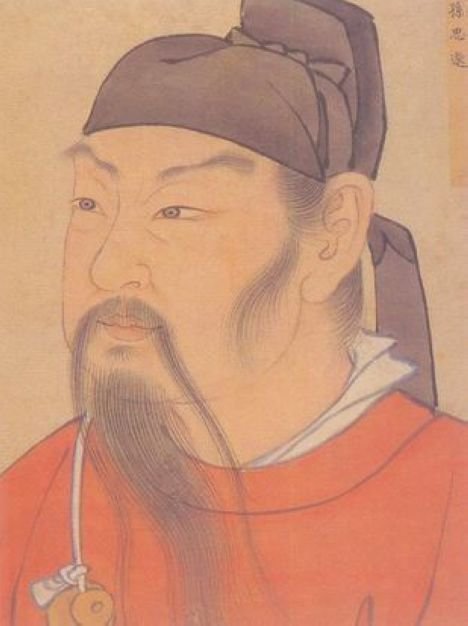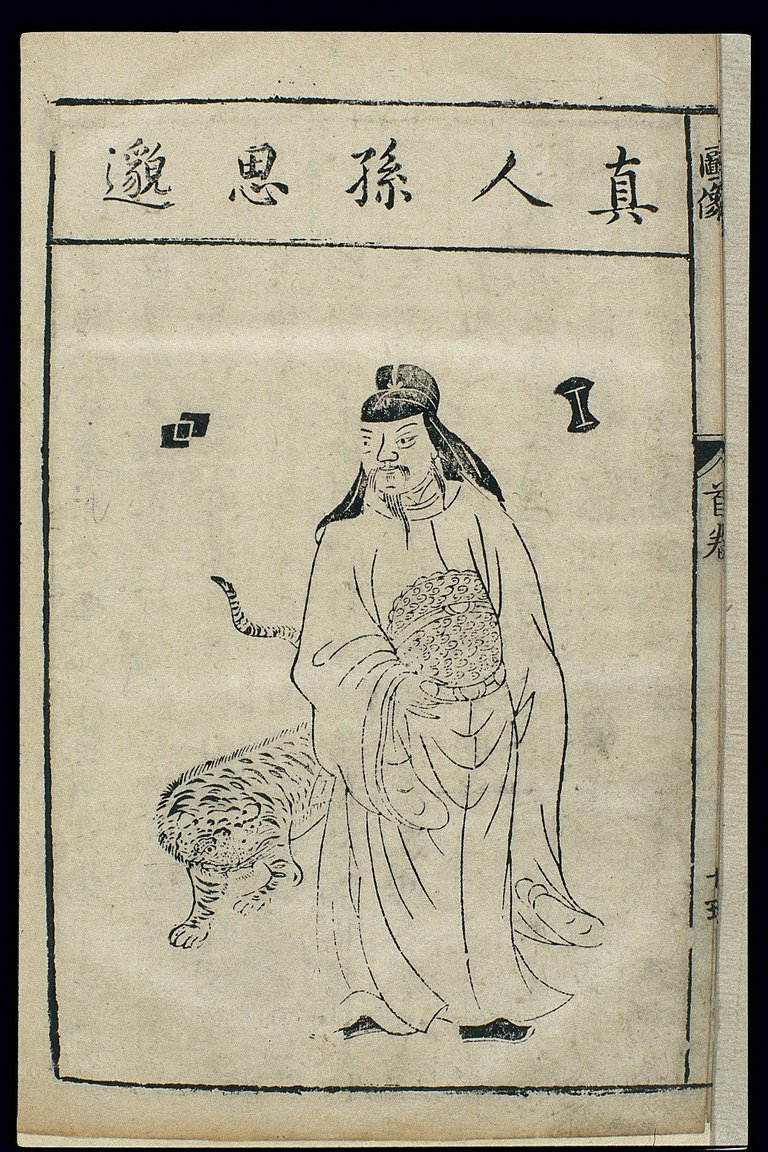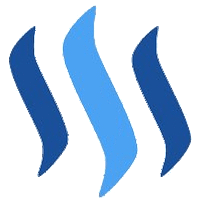In 7th Century CE, Sun Simiao promoted the practice of 養生 Yǎng Shēng, nurturing life as preventative medicine. In his epic 30-volume encyclopædia of medicine, he outlined the importance of diet, exercise, sleep, and sexuality as the methods to prevent disease and promote a long, fulfilling life.

A Qing Dynasty portrait of Sun Simiao (Image Source)
Today Sun Simiao is known as the 'King of Medicinals', and his Essential Prescriptions for Every Emergency worth a Thousand in Gold (備急千金要方 Bèi Jí Qiān Jīn Yào Fāng) is considered a hallmark of Chinese Medicine. The text covers all known knowledge of medicine and extensively covers fields such as gynaecology and paediatrics, as well as an introductory scroll which covers medical ethics. He is particularly well-known for his ideas on nurturing life as preventative medicine.
Sun follows the example of the earliest roots of Chinese Medicine, and emphasises the information contained in the 1st scroll of the Yellow Emperor's Inner Classic Basic Questions (黃帝内經素問 Huáng Dì Nèi Jīng Sù Wèn) on nurturing life as preventative medicine. What is even more interesting is the emphasis he placed on both gynaecology and paediatrics, which up to his time were not considered 'specialist fields' in medicine.
His idea was that if you want to prevent illness from appearing in the adult, then you treat the child; further to that, you therefore treat the mother! This, in my humble opinion, is forward-planning and big-picture thinking. Health becomes something that is life-long, not just something you deal with reactively.
Nurturing life
Of particular interest was the 27th scroll on 養生 Yǎng Shēng, which covered nurturing life as preventative medicine. This is what we may call today 'lifestyle medicine'. Sun did not consider taking pharmaceutical medicines important for prevention, only for treating disease once it arose.
Even if you constantly ingest alchemical preparations but do not know the art of nurturing life, it will still be difficult to extend your lifespan.
Sun Simiao, Essential Prescriptions for Every Emergency worth a Thousand in Gold (備急千金要方 Bèi Jí Qiān Jīn Yào Fāng), translated by Sabine Wilms
He was particularly critical of medical practitioners who were too quick to be dishing out medicines, instead he believed that attending to a patient's diet and lifestyle should be the first intervention, as he explained in the 26th scroll on Healing With Food (Shí Zhì 食治):
People who practice medicine must first thoroughly understand the source of the disorder and know what has been violated. Then, use food to treat it, and if food will not cure it, afterwards apply drugs.’
Sun Simiao, Essential Prescriptions for Every Emergency worth a Thousand in Gold (備急千金要方 Bèi Jí Qiān Jīn Yào Fāng), translated by Sabine Wilms
Sun exemplified the medieval alchemists of the time, scholars whose epistemologies were a syncretic combination of Taoism, Confucianism, and Buddhism. His beliefs were highly influenced by the ancient concept (it pre-dated both Confucius and Lao Zi) of 無為 wúwéi — effortless action.
The way of nurturing life is to constantly strive for minor exertion but never become greatly fatigued and force what you cannot endure.
Moreover, running water does not grow stale, the pivot of the door does not get bug-infested. The reason for this is that they move.
The Way of nurturing life consists of never moving nor standing for a long time, never sitting nor lying for a long time, never looking nor hearing for a long time.
Extended looking damages the blood, extended lying down damages the qi, extended standing damages the bones, extended sitting damages the flesh [muscles], and extended moving damages the sinews [ligaments and tendons].
Avoid overeating, overdrinking, and heavy lifting.
Avoid anxiety and worrying, great anger, sorrow and grief, great fear, jumping about, too many words and great laughter.
Avoid eagerly jumping at your desires and avoid holding on to hatred.
All of these are harmful to longevity. If you are able not to go against these [warnings], then you will be able to extend your life.
Sun Simiao, Essential Prescriptions for Every Emergency worth a Thousand in Gold (備急千金要方 Bèi Jí Qiān Jīn Yào Fāng), translated by Sabine Wilms

A Tang Dynasty woodcut portrait of Sun Simiao with the tiger, published in a Ming Dynasty Pharmacopeia text (Image Source)
It appears that Sun considered the Buddhist notions of nonattachment and mindfulness to be vital to maintaining a temperate but meaningful life.
Therefore, a person who is good at preserving life constantly reduces thoughts, ideas, desires, business affairs, speaking, laughter, worrying, joy, happiness, anger, likes and dislikes.
If you can observe these twelve reductions, this is the essence of nurturing life:
Excessive thought imperils the spirit,
Sun Simiao, Essential Prescriptions for Every Emergency worth a Thousand in Gold (備急千金要方 Bèi Jí Qiān Jīn Yào Fāng), translated by Sabine Wilms
Excessive thought scatters the will,
Excessive desires muddle the will,
Excessive business affairs exhaust the physical body,
Excessive speech wears out the qi,
Excessive laughter damages the viscera,
Excessive worry intimidates the heart,
Excessive joy makes the intentions spill over,
Excessive happiness makes you forget mistakes and become muddled and confused,
Excessive anger makes the hundred vessels unsettled,
Excessive likes make you lose your concentration, and
Excessive dislikes make you haggard and dismal.
The key to understanding this perspective is that all emotions in excess will create some form of damage to your health. Medicine in China was such that there was not the separation of physical, mental, or emotional; only now in the West are more and more researchers coming to similar conclusions as we learn to understand Holistic and Systems Theories.
Is it relevant today?
When I've spoken about the idea of nurturing life as preventative medicine to people (especially past clients) the response is often along the lines that this is idealistic, and not relevant to modern life. I would argue the opposite however.
According to the Australian Bureau of Statistics, just under half of Australians had one or more chronic conditions in 2017-18, an increase from 2007-08 when two-fifths of people had one or more chronic conditions. While this empirical study from the USA explains how chronic disease impacts the economy to the tune of $1 Trillion annually, with "coaching them [patients] toward healthier choices" listed as a key factor to successfully managing chronic disease.
Chronic diseases are the illnesses of the modern age, with increased standards of living (in the West, anyway), ageing populations, increases in sedentary lifestyles, and increase in sub-nutritional foodstuffs. Whereas in ancient China communicable disease would have been the major cause for mortality, increased sanitary conditions and prevention has decreased the impact and incidences of these.
Chronic conditions such as obesity, diabetes, kidney diseases, pulmonary and vascular diseases are indicative of our modern lifestyles. The wisdom of Sun Simiao is relevant more-so today than it was 1200+ years ago.

<s.jpg?resize=780%2C1024&ssl=1
Photo by Monika Stawowy on Unsplash
Nurturing life is DIY
Here's the thing about 養生 Yǎng Shēng nurturing life as preventative medicine: you already have access to it, and it is essentially free!
While you may need guidance and expertise from a practitioner (such as Sun Simiao), you don't need to constantly consult multiple health professionals or medical specialists; nor do you need to spend money on pharmaceuticals or 'nutraceuticals' (vitamins, herbs, supplements, etc — basically 'natural' medicines made in lab).
As Sun Simiao emphasises in his text, these are changes to your diet, changes to your physical exercises (or lack thereof), changes to your emotional wellbeing, and your psychological outlook, and changes to your living and working environment, physically and socially.
You are able to make any appropriate changes in any of these fields right now if you chose to. Some changes may take a while to implement, others could be implemented immediately; the point is you are able to make these changes. It is simply your choice of when, how, and what for.
From my past clinical experience, it was often one very simple change that could be leveraged into far greater changes. Something as simple as cutting out or reducing one type of food; usually it was actually adding something that missing that was often the difference that made the difference.
And the point I always made to my clients was that no one (not even myself as a professional) could really know what was going to work. I never made promises to my clients; instead I invited them to play and experiment for themselves and find what worked for them. Everyone has different needs and different circumstances, and it is important not to buy into the messaging that's out there about "this new amazing superfood", or "that miraculous new drug/herb/supplement".
Nurturing life as preventative medicine is about becoming your own healer, and then following the maxim of "know thyself". Once you have this level of deep, personal gnosis, you can then calibrate and determine for yourself what will benefit you and what won't.
References
Australian Bureau of Statistics, (2018). National Health Survey: First Results, 2017-18 - Chronic Conditions, https://www.abs.gov.au/ausstats, accessed October 3, 2019.
Raghupathi, W., & Raghupathi, V. (2018). An Empirical Study of Chronic Diseases in the United States: A Visual Analytics Approach. International journal of environmental research and public health, 15(3), 431. doi:10.3390/ijerph15030431
Wilms, Sabine, (2010). Nurturing Life in Classical Chinese Medicine: Sun Simiao on Healing without Drugs, Transforming Bodies and Cultivating Life . Journal of Chinese Medicine, 93(June), 5-13.












Posted from my blog PANDORA'S LOST GIFT with SteemPress : https://metametheus.net/nurturing-life-as-preventative-medicine/
I enjoyed reading your post. Sun Simiao has much wisdom in his teachings. Prevention is always better than cure. A good life of healthy diet and moderation in all things truly makes for good health. Unlearning bad habits seems to be most difficult for people so yes childhood needs nurturing definitely.
Retseeming this post so more can enjoy the read and take some good thoughts into the weekend.
Thanks @sallybeth23, host work is pretty inspiring!
Undoing conditioning became the focus of Taoist practices around this time.
Awesome post! Sharing for my friend who MUST follow this route as she manages life with MS. My dad always said 'prevent it before you have to cure it!'i feel i heard that line enough that it's very ingrained in who i am. ❤🌻🙏
MS is a tricky one too.
I never had a patient with MS, but I had colleagues who did; it’s one of those conditions that needs the lifestyle medicine combined with treatment.
A great fan of alchemy, tempering the astral (thoughts/emotions) and healing through nutrition and etheric (subtle body) adjustments and realignments, I was only looking into Taoist health, sex and longevity myself, today, when I stumbled onto this indepth post via @sallybeth23; finding it thus very affirming in my own passion to approach illness and health in an entirely new (old!) way.
I like this Sun Simiao with his critical attitude of "medical practitioners who were too quick to be dishing out medicines".
All it really takes to be happy and healthy is 24/7 vigilance, ceaselss responsibility for self, and strict moral hygiene. Aryuveda and Anthroposophical medicine all echo the observed wisdom above. Easy peasy lemon squeezy (especially good in a glass of water for those who feel sluggish in the morning!).
LOL
I hope it wasn’t anything to do with Daniel Reid’s work... lol... I know that’s the title of one of his more popular books.
You should come and hang out more with the @naturalmedicine crew if you’re into alchemy...
https://naturalmedicine.io
Oh dear, is Reid no good?
TY for your references! Had a peek at your link for the alchemy crew: will keep my eye out for more specifically hermetic alchemists into Spagyrics (can you think of any?).
Well, I’m not a fan of Reid’s and I’ll let people make up their own minds. I’ll just say that some of his info is not entirely accurate. But whatever works for people...
I know there are a couple of people within the #naturalmedicine community who do a lot of spagyric work.
I’m not versed in Western Alchemy.
Would you be able to recommend a better writer than Reid on the same subject material. Would very much appreciate any new direction to look into! Accuracy is holy with me!
In English..?? 🤣
The problem as has been taught to me (and is also explicit in many of the original texts) is that this stuff can’t be learned from texts. They make constant reference to direct transmission from an able teacher. And the teacher also makes a choice whether the student is ready and capable to receive the transmission to begin with.
The best metaphor is that the texts are like lecture notes: they’re pointless and don’t make sense unless you also attended the lecture.
Having said that, it’s still bloody interesting reading!!
Eva Wong does a lot of translations, and I believe she’s also an adept of one lineage.
Damo Mitchell writes books, and he’s a teacher in the UK.
Thomas Cleary and Fabrizio Pregadio have both done a lot of good quality scholarly translations.
Ni Huaching is from a strong family lineage of Taoists, not sure which school or sect.
I’d say find a teacher who resonates.
😊🙏🏽☯️
Thank you so much for your suggestions. Will be looking into them , even if only from the perspective of a spiritual researcher; call me foolish, but I never was one to go looking for much of a teacher: I tend to look for words that convene with my personal interpretation of what I believe to be manifestations of spirit. And as a wordmonger I adore terms like Jade Gate or quarter inch square....and with a deep interest in nutrition as bridge between inner and outer, I am partial to the Five Element theory on what's hot and what's not...
Otherwise, I so agree with you that one generally needs more experience, plenty of resonant personal guidance, and fewer books! One day I hope to practice what I preach!
There is so much wisdom here!! It's essentially "focus on the positives" with a little direction and knowledge. I love that our attention to diet, exercise, breath, sex and rest are so pleasurable, and so PIVOTAL to our health and longevity. A wonderful post and shared to Natural Medicine on Steem's facebook page too, as well as the @c-squared 'nurtury" channel..
Leading the curation trail for both @ecotrain & @eco-alex.
Together We’re Making This World A Better Place.
Click Here To Join the manually curated trail "@artemislives" to support quality eco-green content.
I know, right?!?
It’s not about living ascetic lives or ‘sacrificing’ anything. I used to see so many people who were miserable about trying live a ‘healthy life’ which led to them bingeing on things they believed they shouldn’t have.
Posted using Partiko iOS
This is so true, I touched on this in my response, how our choices, our lifestyle dictate our overall well being, we need to take responsibility for how we live, for all aspects of our life and learn to nurture ourselves. It all starts with what we consume, food, water, energies, pollutants and so many other things as well. Great response xx
Yeah, all starts with our choices.
One of my personal lessons in all of this was also not being so bloody critical and judgemental about my choices, my desires, or even my cravings. Even if my 4yo inner child throws a tantrum because he wants a pizza, there is something for me to learn in that which leads me to greater choice and flexibility, and an honesty about what I’m feeling.
Posted using Partiko iOS
This is an incredible amount of great information about preventative medicine. I see you and I ended up on the same page about this challenge. I am so happy for the opportunity to learn more about Chinese Medicine through your articles. :-)
I think most of us around here are probably on the same page 😉🙏🏽☯️
Posted using Partiko iOS
Agreed! It's a Lifestyle.
My Dads philosophy or oft repeated motto was 'ya just gotta keep moving'. Live life, but moderately.. sage advice. I am reminded of my face and stomach hurting from laughing too much. As I read the first half I was thinking of how parallel this was to the middle way. Its no suprise that all these wise healers and teachers from various traditions arrived at same observation. I need his moderation advice stuck to my fridge. Love your response.
What I’ve discovered through translating the I Ching is that this idea of (and the phrase itself) “obtaining the Middle” 得中 dé zhōng predates Buddhism by somewhere around 1000 years or more.
Maybe Siddhartha encountered some Chinese sages in the himalaya when he was off being a hermit....?......
Posted using Partiko iOS
This post has been resteemed by @original.content.
Follow me to keep up-to-date with posts tagged #oc and the author on @ocdb's follow list.
Powered by witness untersatz!
This post has been resteemed by @original.content.
Follow me to keep up-to-date with posts tagged #oc and the author on @ocdb's follow list.
Powered by witness untersatz!
This post was shared in the Curation Collective Discord community for curators, and upvoted and resteemed by the @c-squared community account after manual review.
@c-squared runs a community witness. Please consider using one of your witness votes on us here
Please, I will like to know how to use steempress. Thanks. The process involve
Posted using Partiko Android
Hey.
Steempress is a plug-in you have on your self-hosted WordPress site. It won’t work for the free WordPress blogs.
Posted using Partiko iOS